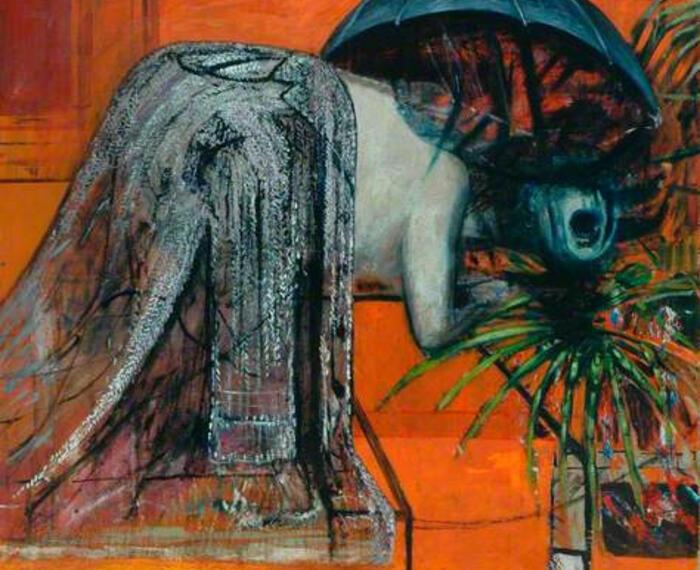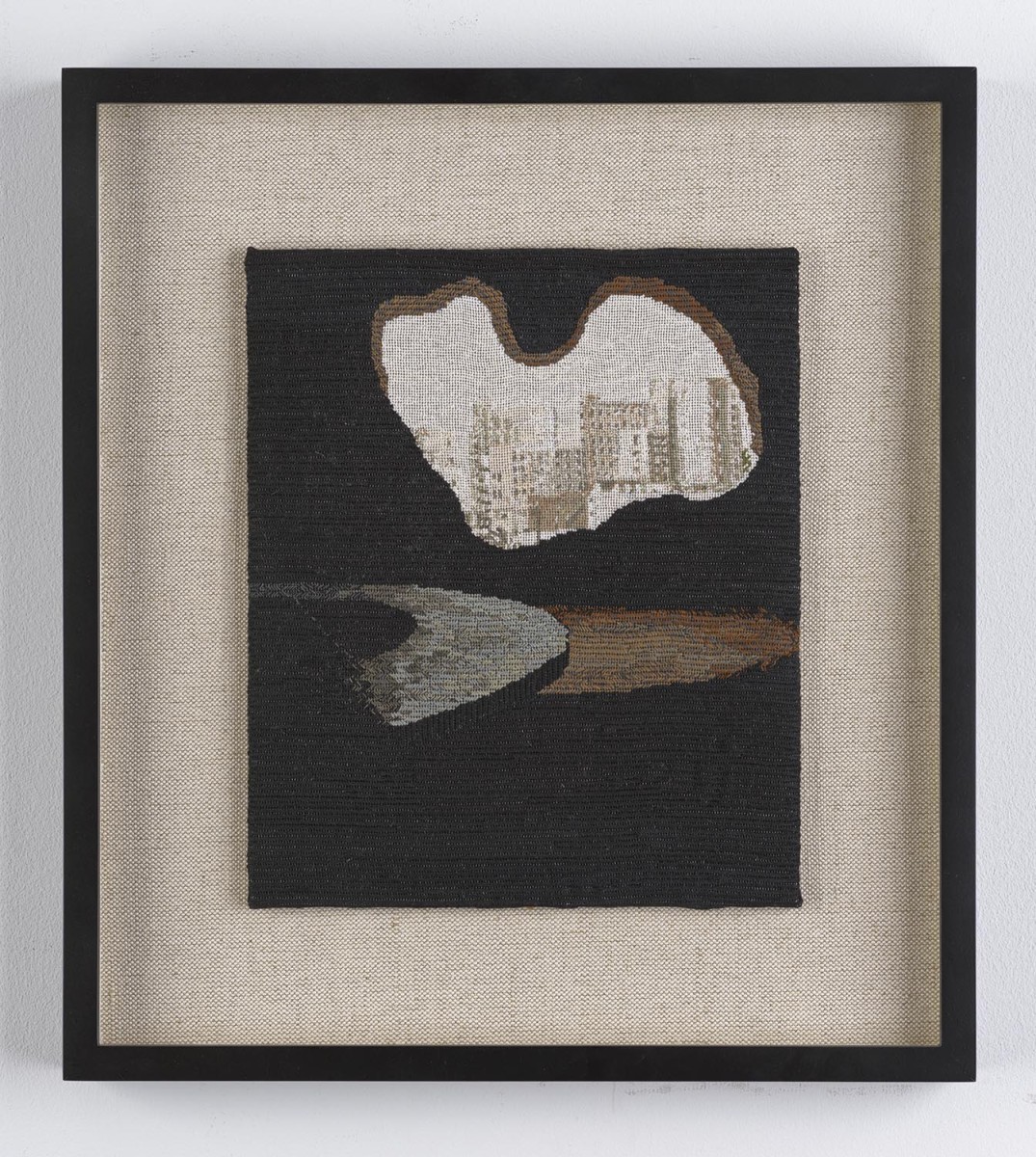


Narelle Jubelin, As yet untitled (Lina Bo Bardi, 1987), 2014, cotton on silk petit point, 37 × 33cm, framed. © the artist, Courtesy of Marlborough Contemporary, London. Photo: Francis Ware.
As an aperitivo for those of us lucky enough to be whizzing off to Madrid next week for ARCO, today I thought we would look at the current show by Narelle Jubelin at Marlborough Contemporary. An Australian by birth, the artist has been based in Madrid since the late 90s. Just as her personal biography is crucially defined by this transit across the planet, so her work has long been concerned with the way ideas, specifically those relating to the canon of Modernism, transition through time and across continents.
As a preface to the slim publication produced for this show (such a very elegant and useful series of publications) Jubelin has included a passage from a text by John Berger, read to her as a birthday gift by a friend last year. It describes the two of them lying on their backs, gazing up at the stars. It conjures the image of the people who first gave names to the constellations, positioning them as the tellers of tales. “Imagining the constellations didn’t alter the stars, nor the black void that surrounds them. What changed was the way we read the night sky”. It is a very neat metaphor as it quite precisely defines this questioning of the processes, if not the individuals who ‘join the dots’ between facts in creating histories.
Jubelin’s medium is petit point embroidery. The extraordinary finish of each work might lead you to think these were achieved with a machine but no, they are each done laboriously by hand. Consequently they are uniformly small in scale, and her production is small too. This lends the works, and the show as a whole, a pleasing intensity that draws the viewer in to each image and slows down the process of looking.
The thirteen works in petit point here all borrow images from other artists. There are 20th century masters like Pablo Picasso and Joseph Albers, as well as 21st century stars such as Christopher Wool and Austrian collective Gelitin. In amongst these familiar figures are half a dozen works referencing female artists whose names have had a more circuitous journey into the annals of art history. If you will forgive me for generalising dangerously, it seems to me that figures such as Mira Schendel, Hannah Höch, Anni Albers, Lina Bo Bardi, Ree Morton and Lee Bontecou have only relatively recently been recognised for the importance of their contribution to their art forms. Jubelin is not making overtly feminist arguments here, the work has a broader scope than that, nevertheless this gendered aspect of the writing of histories is significant.
In between the framed works are a series of bronze cast sculptures that hang on the walls. Reading as geometric abstract reliefs, in the pale monochrome that is the signifier of high Modernism, these are in fact casts of the cheap cardboard packaging used for consumer goods in transit. They are objects that produce a quick, Duchampian flipping of meaning for a found object, as well as subtly referencing the flows of merchandise around the globe that so characterise the age we live in. Also included in the exhibition are two films. These are not artists’ films but rather films of extraordinary events witnessed by the artist. One is the silent performance by the Flamenco singer Nino de Elche, wearing a Francis Bacon T-shirt, indirectly referencing Marlborough’s own art history, from whose work the exhibition takes its title. The other is footage of a dance of welcome performed by an Aboriginal artist in Australia. The films anchor the coordinates of Jubelin’s life while emphasising the pre-eminence of lived experience.
Jubelin’s show is open for a couple of weeks more and is well worth a detour in your peregrinations around the West End.
Caroline Douglas
Director
Narelle Jubelin, Flamenco Primitivo, at Marlborough Contemporary, 6 Albemarle Street, London W1S 4BY. Open Monday - Friday, Saturday 10.00 - 17.30, Saturday 10.00 - 16.00. Exhibition continues until 12 March 2016. www.marlboroughlondon.com